The Weird Show, Mar 16 – Apr 13, 2014
Past: 333 Broome St
Installation view, The Weird Show, Canada, New York, 2014
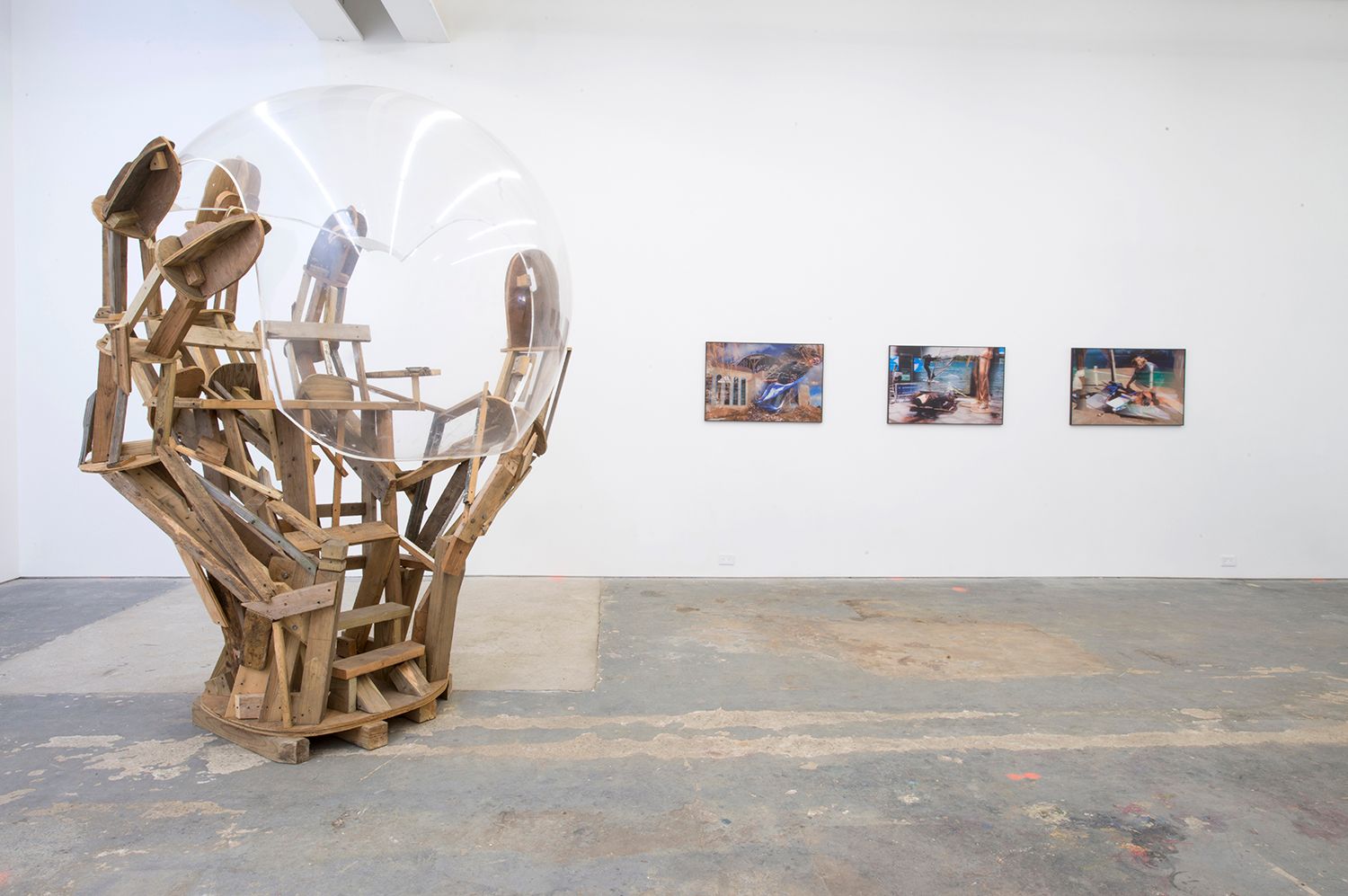
Installation view, The Weird Show, Canada, New York, 2014
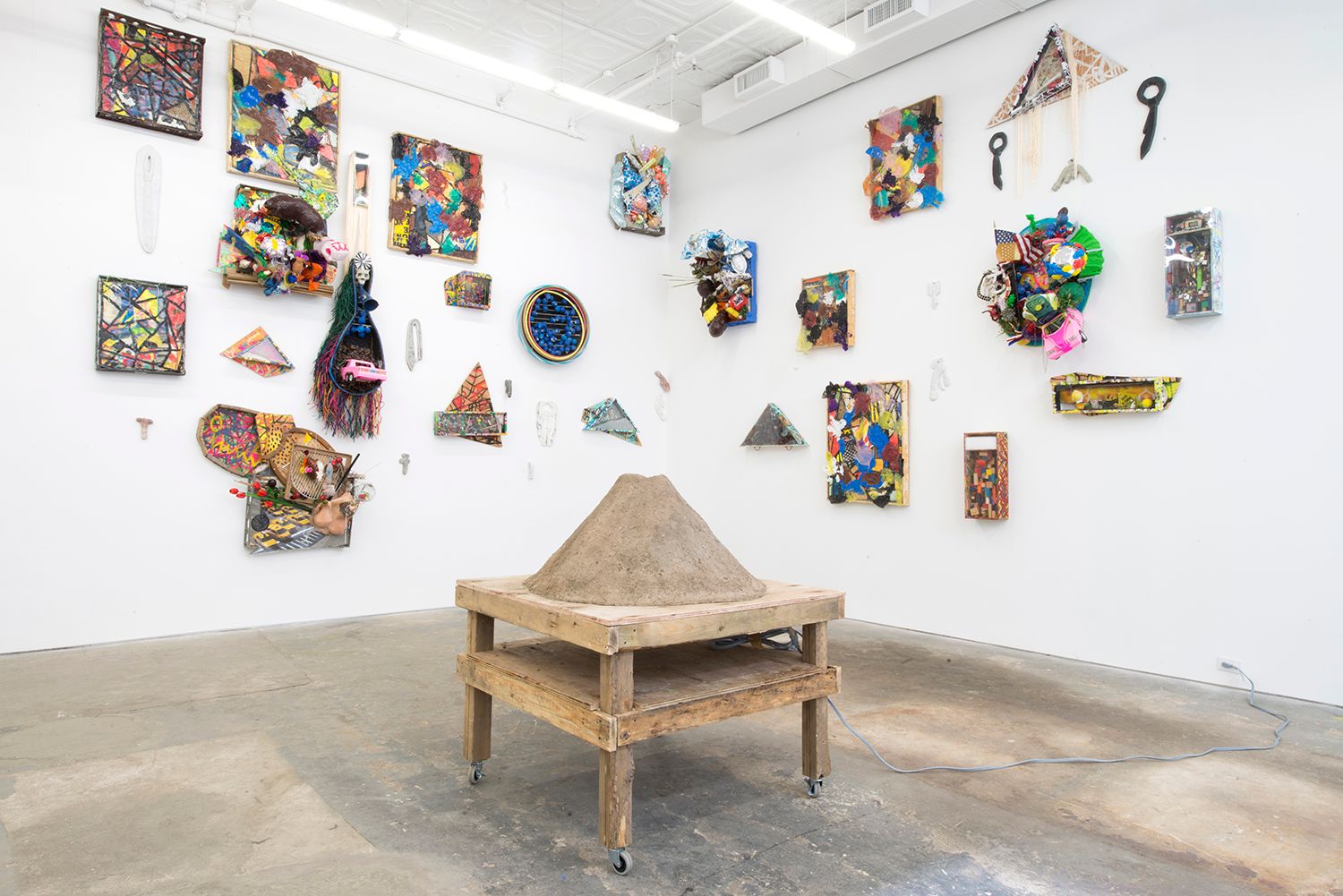
Installation view, The Weird Show, Canada, New York, 2014
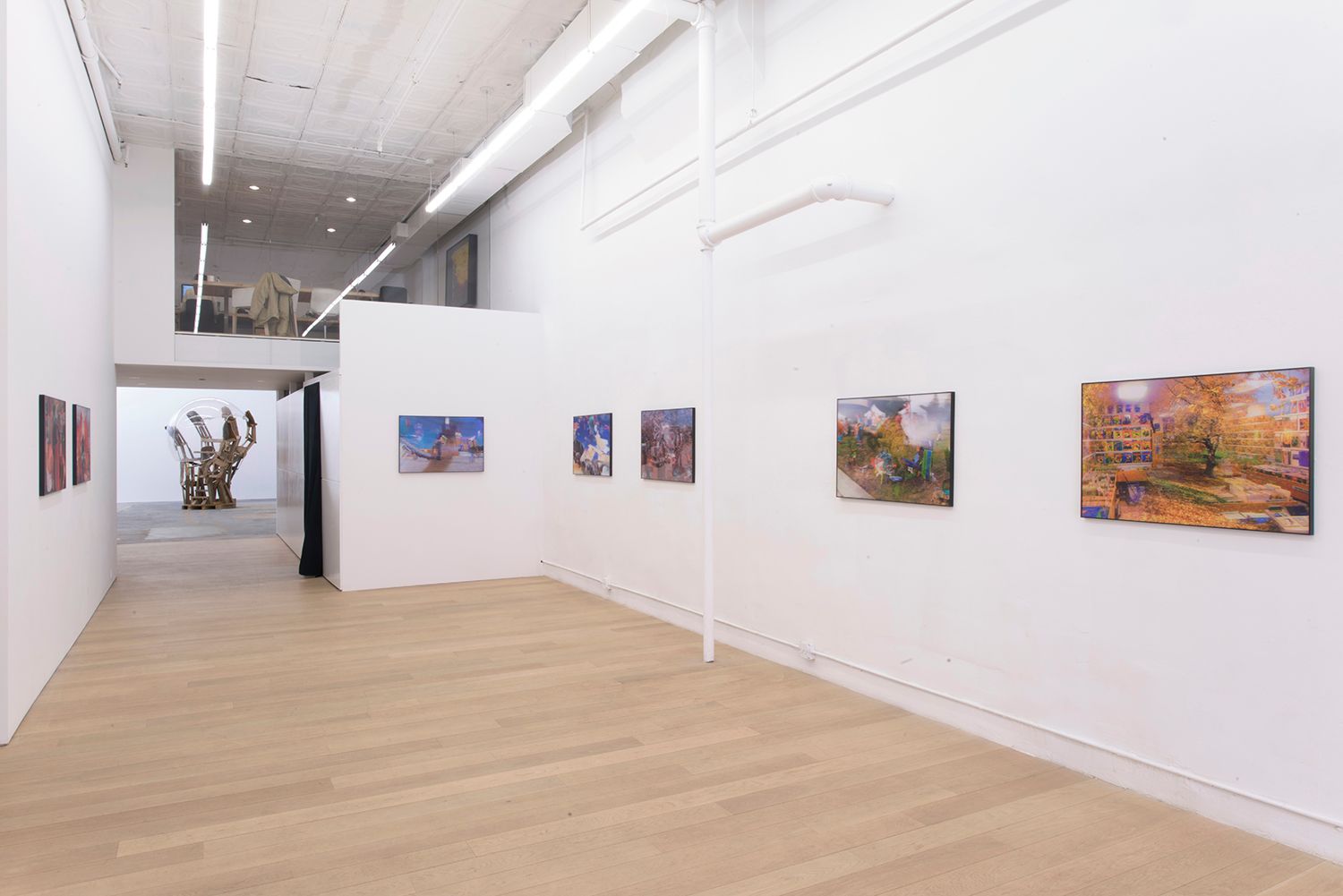
Installation view, The Weird Show, Canada, New York, 2014
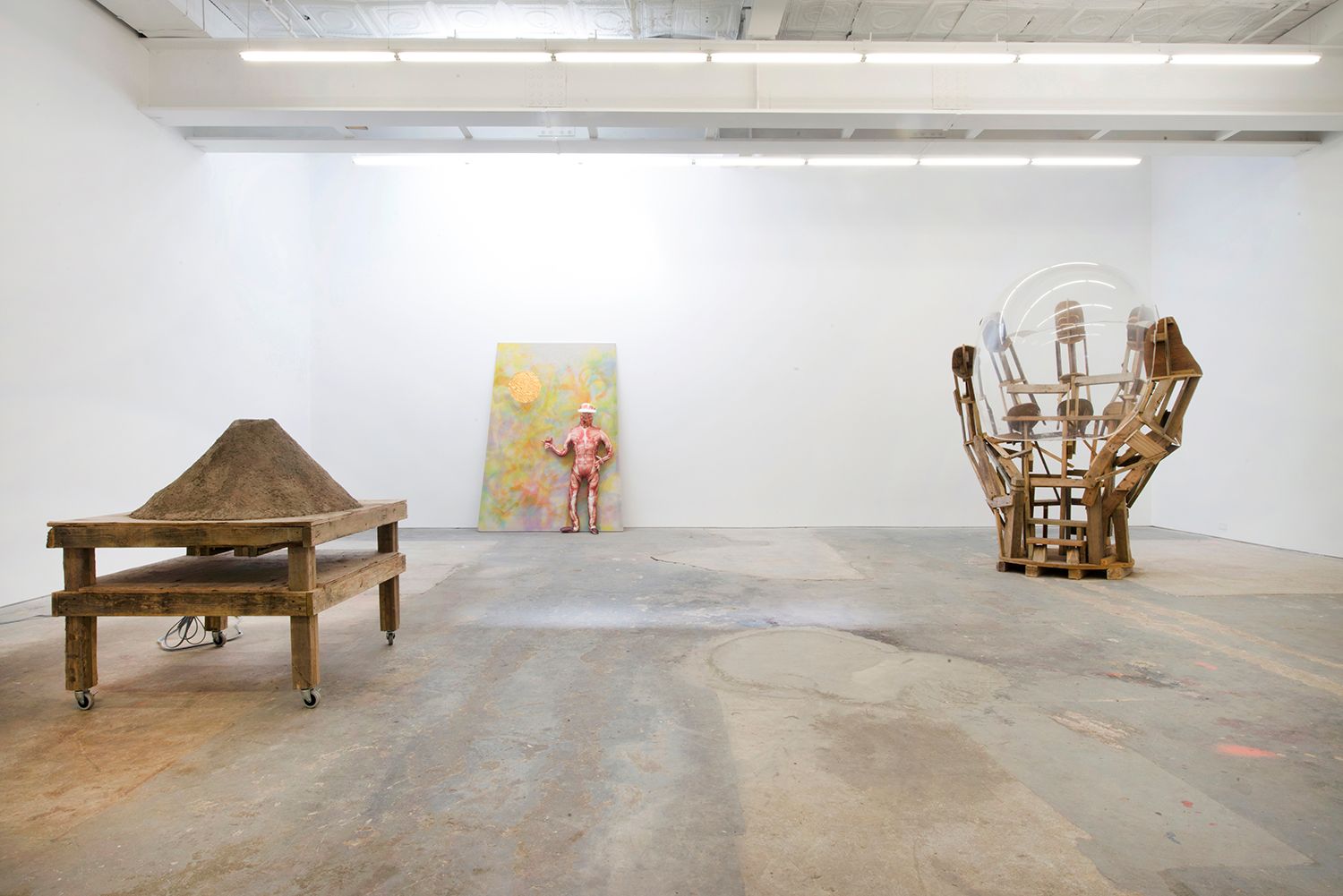
The Weird Show, Canada, New York, 2014
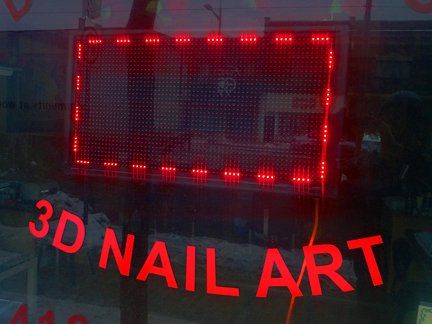
Artworks
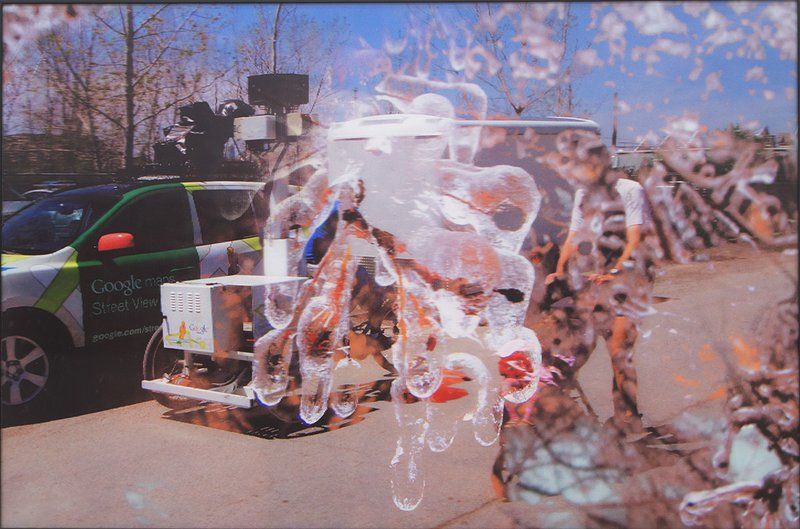
Willy Le Maitre,
Route Tracer,
2013,
24 × 36 in (60.96 × 91.44 cm)
Lenticular print
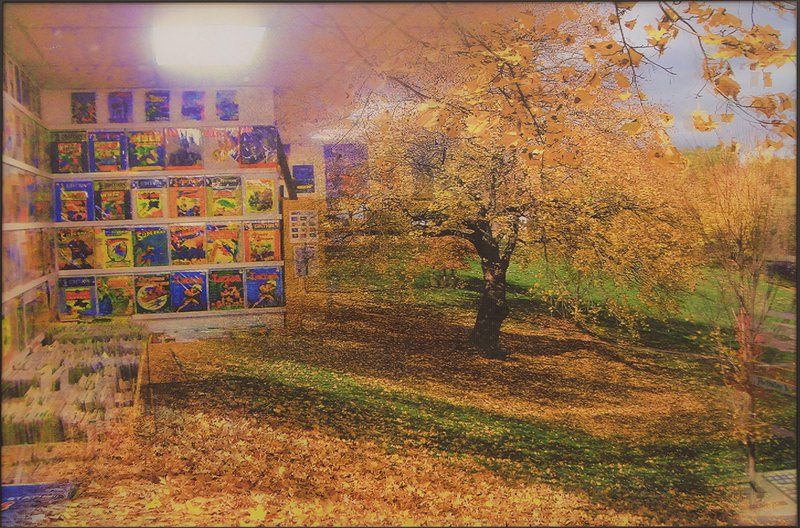
Willy Le Maitre,
Owner of the Tree,
2013,
24 × 36 in (60.96 × 91.44 cm)
Lenticular print
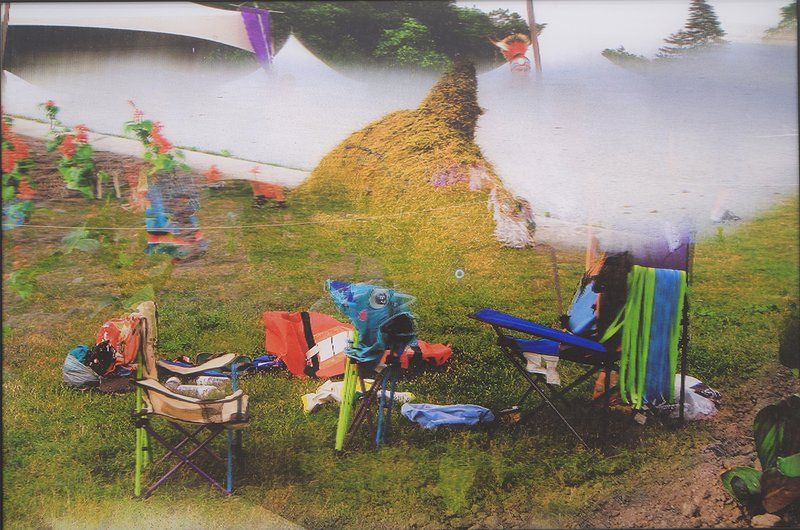
Willy Le Maitre,
Median Crest,
2013,
24 × 36 in (60.96 × 91.44 cm)
Lenticular print
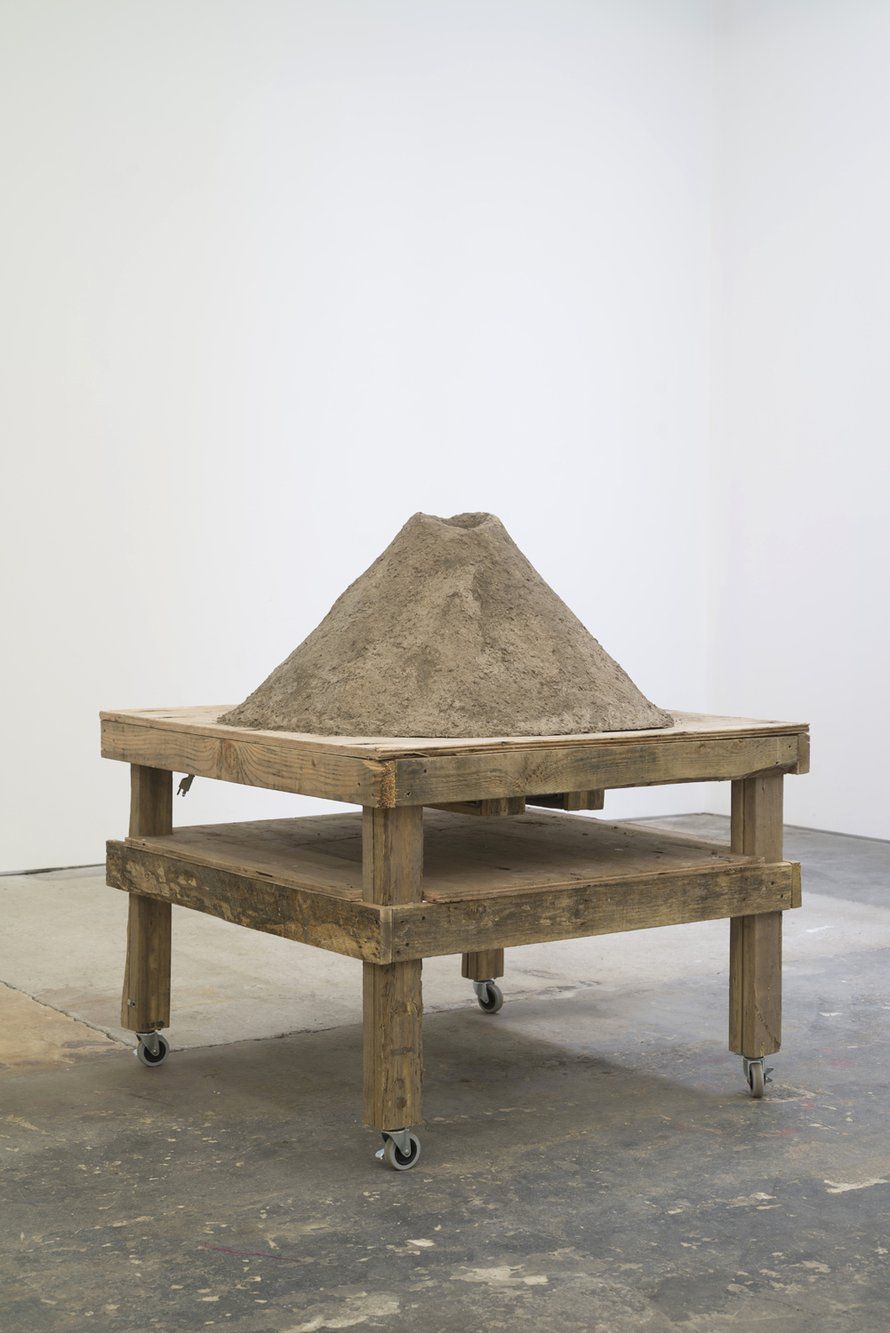
Peter Coffin,
Untitled (Natural Phenomenon, Volcano Model),
2014,
48 × 37 × 37 in (121.92 × 93.98 × 93.98 cm)
Mixed media
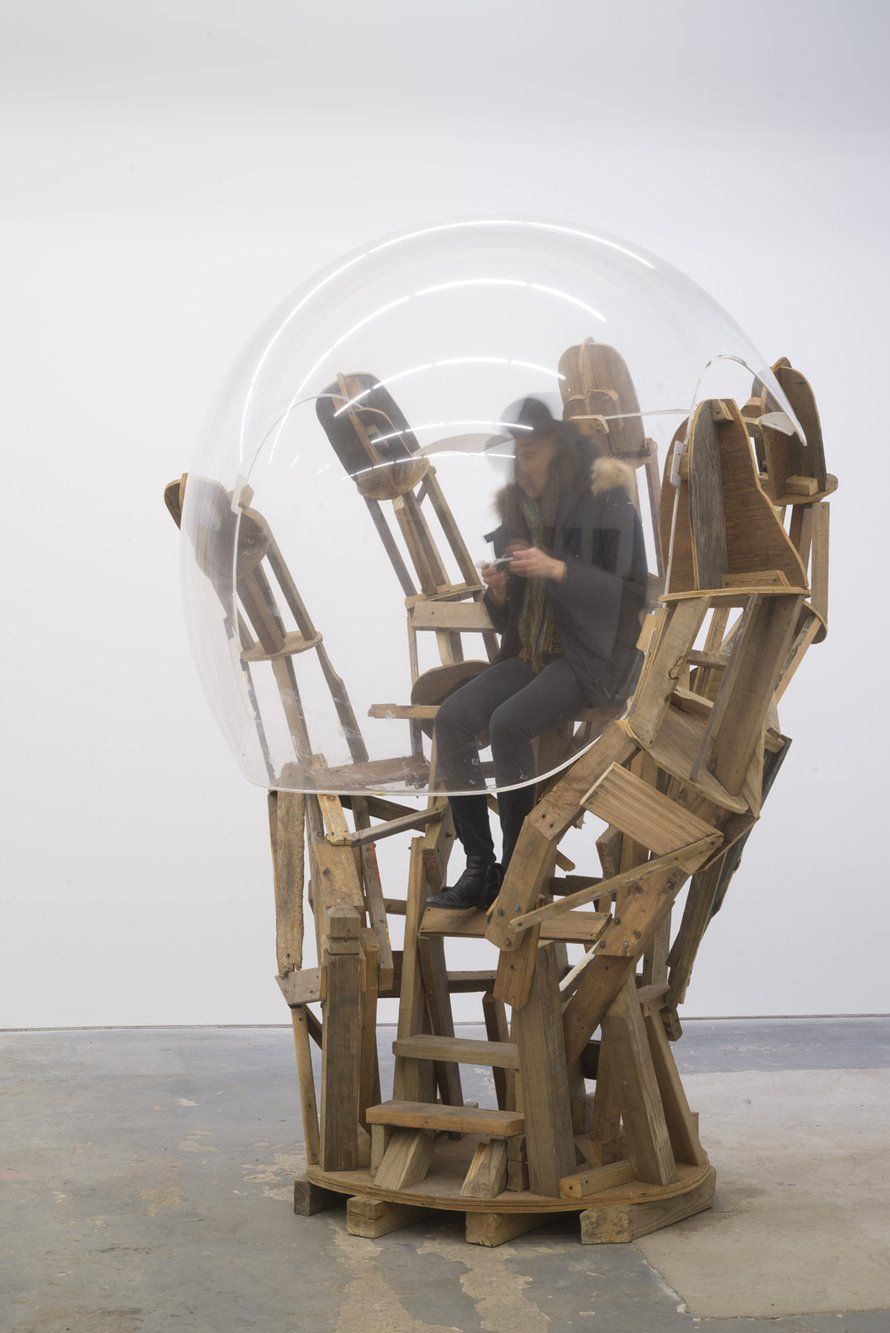
Peter Coffin,
Untitled (Unfinished Hand Holding a Bell Bubble),
2013,
130 × 65 × 65 in (330.2 × 165.1 × 165.1 cm)
Reclaimed wood, hardware and a helicopter windshield
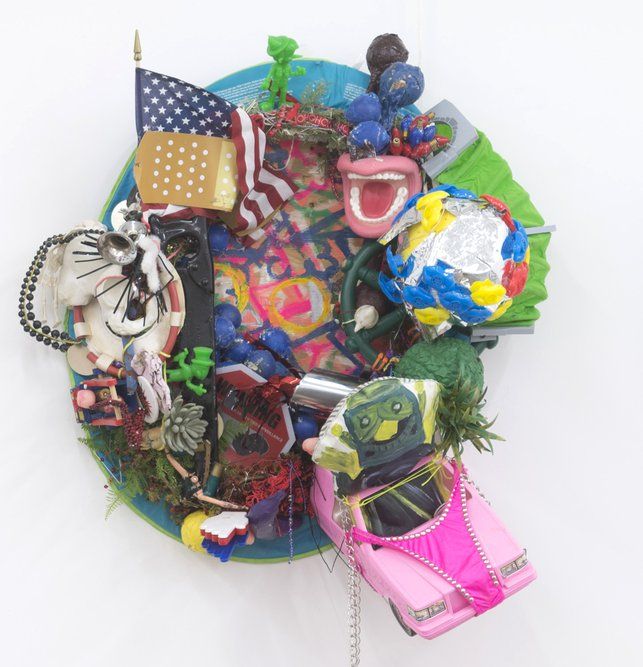
Agathe Snow,
TV Celebrity,
2014,
44 × 35 × 17 in (111.76 × 88.9 × 43.18 cm)
Papier Mâché, vinyl adhesive, painted wood and mixed media
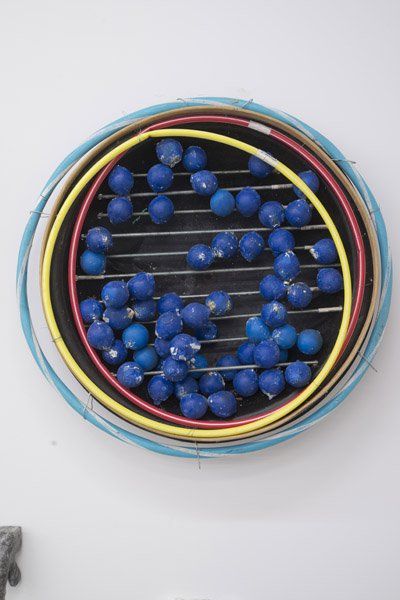
Agathe Snow,
Strobe,
2014,
32 × 32 × 8 in (81.28 × 81.28 × 20.32 cm)
BBQ grill, hula hoops, plastic balls and magnet coils
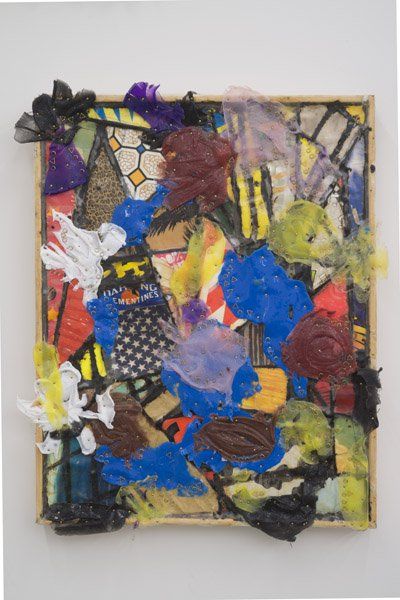
Agathe Snow,
DJ Booth,
2014,
42 × 33 × 3 in (106.68 × 83.82 × 7.62 cm)
Styrofoam, enamel paint, fiberglass and vinyl cutouts
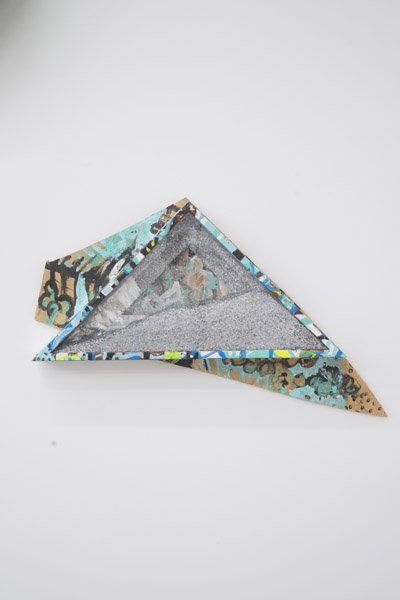
Agathe Snow,
Makeup More,
2014,
21 × 31 × 4 in (53.34 × 78.74 × 10.16 cm)
Triangular box, glass, enamel paint on wood, silver and fold flitter and neon rope
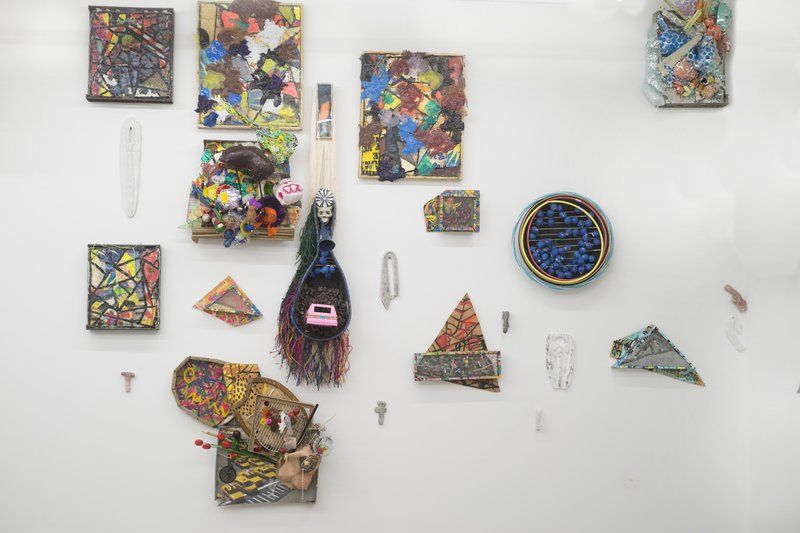
Agathe Snow,
Night Out,
2014,
216 × 216 in (548.64 × 548.64 cm)
Mixed media
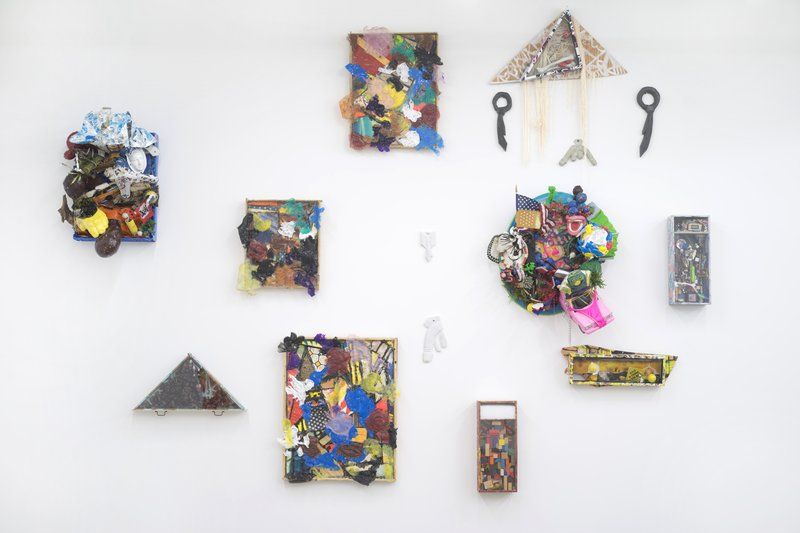
Agathe Snow,
Night Out,
2014,
216 × 216 in (548.64 × 548.64 cm)
Mixed media
Press Release
Here at CANADA the stars are lining up like a big dipper for the gallery’s latest three person show. Built from varied influences and distinct geographies these three mid career artists come together for no better reason than our admiration for their work and a want of current samples. From the whimsy of Mr. Coffin’s famous curiosity and gold medal studio gymnastics, to Ms Snow rebelliously lovable, supremely confident anti-form structures, to a return visit with Willy Le Maitre’s crystal clear 3d diffusion art and transport phenomena, The Weird Show guarantees safe shelter from the monotony of it all.
Willy Le Maitre encourages 3-dimensional thinking with the vivid quality of snapshots as a means to change the conception of time and space. He investigates the phenomenology of seeing; looking at how images of the seen are blended with those that the mind recalls.The images are connected by association. One is taken from a repository of captured photos and combined with another. The images interact in the picture’s composition with an instability that resembles a passing moment. They become something indistinct- a meshing of the seen and the recalled image.
Agathe Snow introduces narratives of environmental collapse, accumulation and accretion with a playful series of sculptures that hang on the wall. The two-dimensional wall works manipulate our perceptions- laden with consumer objects they float in an unexpected and upside down world. Snow creates her own universe that is governed by its distinct set of rules. There is a weird sense of time. The past and future are jumbled together into a non-linear evolution.
Peter Coffin’s large wooden hand suggests a sphere and is completed by the bubble windshield of a Bell 47 helicopter- the same helicopter hanging in the Museum of Modern Art in New York. It’s inventor Arthur M Young was a philosopher, physicist, and mystic who created the institute for the study of Consciousness in the same neighborhood of Berkeley, where Coffin grew up. Arthur called the helicopter his “Psycopter” because he believed that experiencing the psycopter’s flight would change the way we relate to time and space. Coffin employs the realm of time in his volcano piece, a model of a volcano that makes a smoke circle each minute. Volcanos are known to make perfect smoke circles just as dolphins make perfect air bubbles. Bubble rings and smoke rings are both examples of vortex rings. The syncopated rhythm of the smoke becomes a physical measure of time.
All three of these artists have the skill to lift us out of the spot of our existence. These works stop the flow of our collective expectations while redefining our perceptions on the place we think we once knew best. It is through these shifting sands of the weird that we are made better.
Press
Ken Johnson "Galleries to See this Spring." The New York Times April 4, 2014